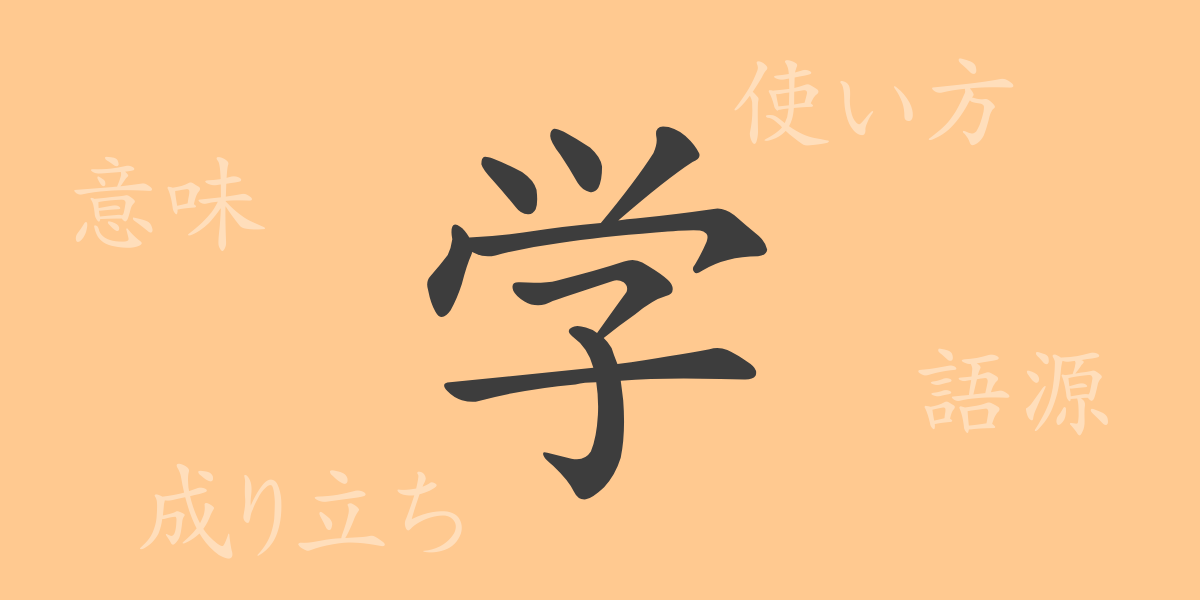One of the symbols that epitomizes the beauty and complexity of the Japanese language is Kanji. Among these, the character “Gaku (学)” is deeply rooted in Japanese culture and education. In this article, we will explore the history, meaning, and usage of the Kanji “Gaku (学),” introduce idioms and proverbs commonly used in daily life, and delve into the profound world that this single character represents. Let’s open the door to learning and touch upon the deep world held by this character.
The Origin of Gaku (学)
The Kanji “Gaku (学)” evolved from ancient Chinese pictographs. Originally, it depicted “a child learning under a tree,” capturing the essence of the act of learning. Over time, it has transformed into a more abstract form and has come to its current state. This character is a historic symbol that has conveyed the importance of accumulating knowledge since ancient times.
The Meaning and Usage of Gaku (学)
“Gaku (学)” refers to concepts related to the acquisition of knowledge and skills, such as “learning,” “scholarship,” and “school.” It is also widely used to denote the process and place where people grow and deepen their knowledge. In Japanese society, which values education and self-improvement, this character holds a very positive value.
Readings, Number of Strokes, and Radical of Gaku (学)
The Kanji “Gaku (学)” is distinctive not only for its form and meaning but also for its readings and components.
- Readings: The Onyomi (sound reading) is “Gaku,” and the Kunyomi (native reading) is “manabu.”
- Number of Strokes: It is composed of 8 strokes.
- Radical: The radical is “Ko (子),” a common element found in characters related to education and growth.
Idioms, Phrases, and Proverbs Using Gaku (学) and Their Meanings
There are numerous idioms, phrases, and proverbs that include “Gaku (学)” in the Japanese language. These reflect the Japanese culture that conveys the importance of learning and knowledge.
- Gakumon -no susume (学問のすすめ) – A phrase advocating the importance of advancing one’s studies.
- Mana-bi-sha (学び舎) – A place for learning, referring to a school.
- Gakureki shakai (学歴社会) – A society where social status tends to be determined by one’s educational background.
- Shougai gakushuu (一生学習) – A phrase expressing the importance of lifelong learning.
Conclusion on Gaku (学)
The Kanji “Gaku (学),” as its form suggests, has long symbolized the value of effort in acquiring knowledge and the importance of education. Even in modern society, there are many words and concepts that convey the significance of learning through this character, showing how deeply it is ingrained in our lives. By understanding the meaning of “Gaku (学)” and deepening our knowledge, we can build a richer life going forward.

























